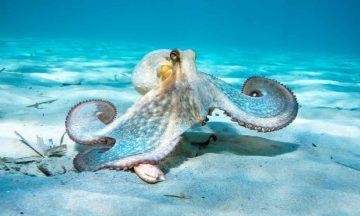Andrew Anthony in The Guardian:
 We live in a golden age of science writing, where weighty subjects such as quantum mechanics, genetics and cell theory are routinely rendered intelligible to mass audiences. Nonetheless, it remains rare for even the most talented science writers to fuse their work with a deep knowledge of the arts. One such rarity is the Italian theoretical physicist Carlo Rovelli who, like some intellectual throwback to antiquity, treats the sciences and the humanities as complementary areas of knowledge and is a subtle interpreter of both. His best-known work is Seven Brief Lessons on Physics, which was a bestseller, most notably in Italy, where he is also well known for his erudite articles in newspapers such as Corriere della Sera.
We live in a golden age of science writing, where weighty subjects such as quantum mechanics, genetics and cell theory are routinely rendered intelligible to mass audiences. Nonetheless, it remains rare for even the most talented science writers to fuse their work with a deep knowledge of the arts. One such rarity is the Italian theoretical physicist Carlo Rovelli who, like some intellectual throwback to antiquity, treats the sciences and the humanities as complementary areas of knowledge and is a subtle interpreter of both. His best-known work is Seven Brief Lessons on Physics, which was a bestseller, most notably in Italy, where he is also well known for his erudite articles in newspapers such as Corriere della Sera.
He writes on subjects as varied as classical philosophy, the meaning of science, the role of religion, the nature of black holes and the sociopolitical revelation of reading Hitler’s Mein Kampf (fascism grows from fear, not strength). His new book is a collection of his newspaper articles, a series of finely wrought essays that draw on an impressive hinterland of cultural and scientific learning. There is, for example, a fascinating exploration of Dante’s understanding of the shape of the cosmos, which, says Rovelli, anticipated Einstein’s brilliant intuition of a “three sphere” universe by six centuries. And a rather moving meditation on the nature of an octopus’s consciousness that could make even the most devoted pescatarian hesitate before ordering a dish made from our shockingly underrated eight-limbed friends.
More here.
